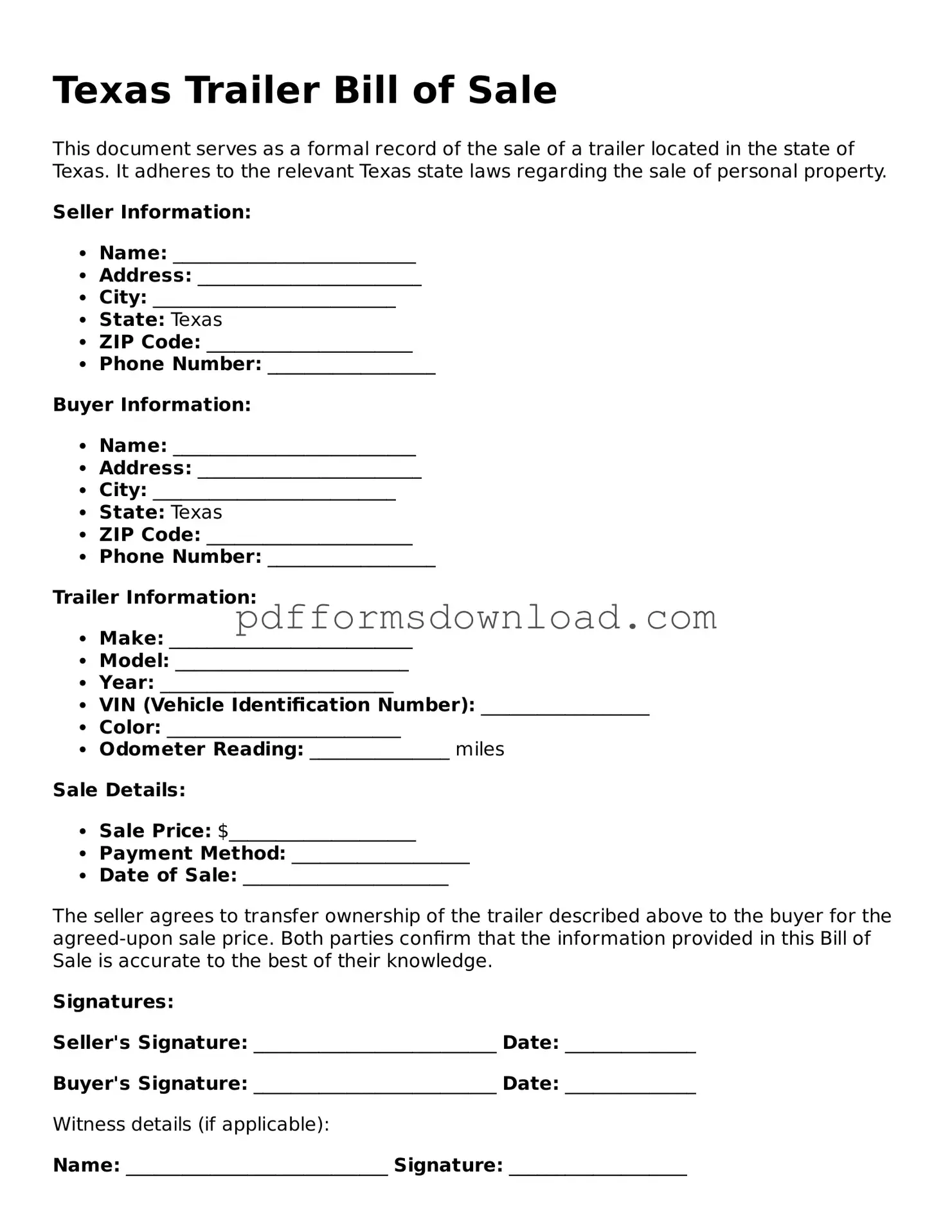What is a Texas Trailer Bill of Sale form?
The Texas Trailer Bill of Sale form is a legal document used to transfer ownership of a trailer from one party to another. It serves as proof of the transaction and includes essential details about the trailer, the seller, and the buyer. This form is important for both parties to ensure a smooth transfer of ownership and to provide documentation for future reference.
Why do I need a Bill of Sale for a trailer?
A Bill of Sale is crucial for establishing legal ownership of the trailer. It protects both the buyer and seller by documenting the sale details, including the purchase price, date of sale, and identification of the trailer. This form can also be required by the Department of Motor Vehicles (DMV) when registering the trailer in the new owner's name.
What information is required on the Texas Trailer Bill of Sale?
The form typically requires the following information: the names and addresses of both the seller and buyer, a description of the trailer (including make, model, year, Vehicle Identification Number or VIN, and any other identifying details), the purchase price, and the date of the sale. Both parties should sign the document to validate the transaction.
Do I need to have the Bill of Sale notarized?
Notarization is not required for a Texas Trailer Bill of Sale. However, having the document notarized can add an extra layer of protection for both parties. It verifies the identities of those involved and can help prevent disputes in the future.
Is a Bill of Sale the same as a title?
No, a Bill of Sale is not the same as a title. The title is the official document that proves ownership of the trailer. The Bill of Sale is a record of the transaction. When purchasing a trailer, the buyer should receive the title from the seller along with the Bill of Sale.
What should I do if the trailer does not have a title?
If the trailer does not have a title, the seller must apply for a duplicate title before completing the sale. In Texas, the seller can request a new title through the DMV. Alternatively, the buyer may need to complete an application for a title without a title, which can involve additional steps and documentation.
Can I use a generic Bill of Sale form for my trailer?
While you can use a generic Bill of Sale form, it is advisable to use the specific Texas Trailer Bill of Sale form. This ensures that all necessary information is included and complies with Texas laws regarding trailer ownership transfers.
How do I register my trailer after the sale?
After the sale, the buyer must take the signed Bill of Sale and the title to the local DMV office to register the trailer. The buyer will need to provide identification and pay any applicable registration fees. It is important to complete this process promptly to avoid any penalties.
Can I cancel a Bill of Sale?
Once a Bill of Sale is signed and the transaction is complete, it generally cannot be canceled. Both parties should ensure they are satisfied with the terms before signing. If there are issues after the sale, it may require negotiation between the buyer and seller to resolve any disputes.
Where can I obtain a Texas Trailer Bill of Sale form?
The Texas Trailer Bill of Sale form can be obtained from various sources, including online legal document services, the DMV website, or local government offices. It is essential to ensure that the form is up-to-date and complies with current Texas regulations.

